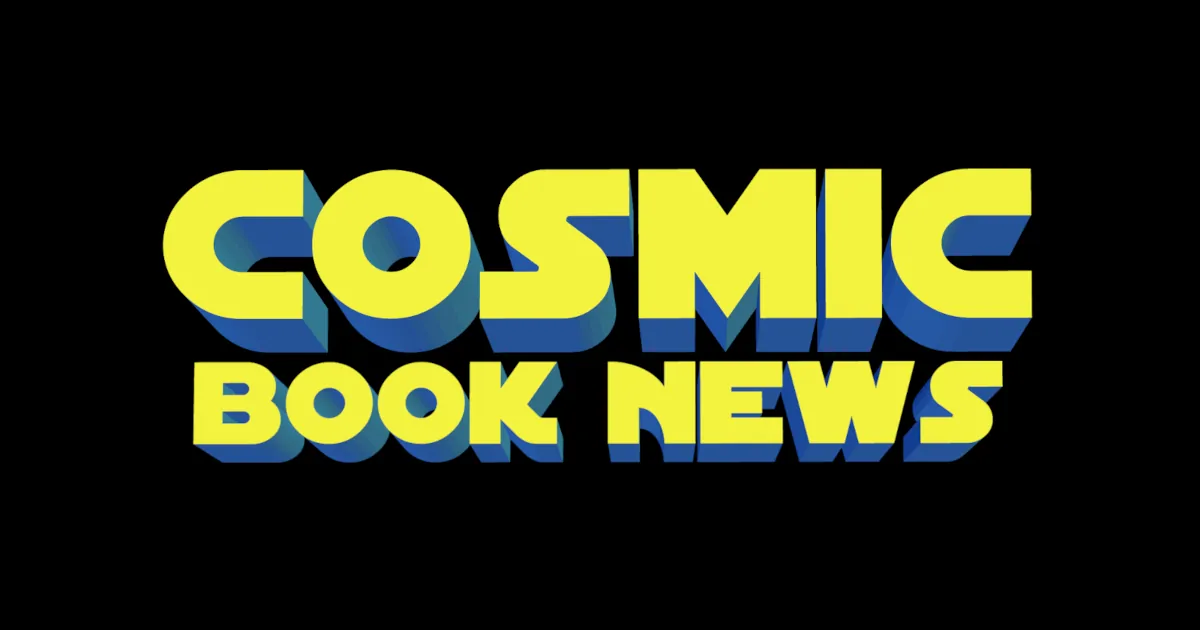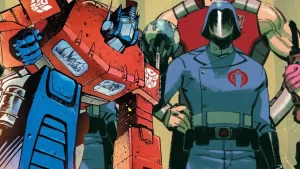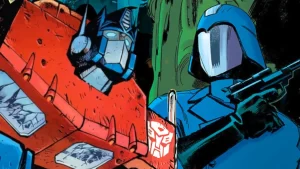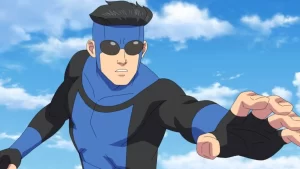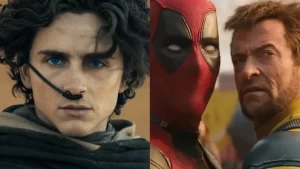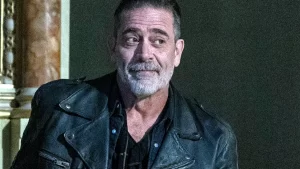A Video Game Review of The Walking Dead: No Time Left
By: Lawrence Napoli
Chapter 5 of TellTale Games’ The Walking Dead is a proper, although not so very surprising, end to this adaptation of Robert Kirkman’s signature IP. Originally, I was intrigued by the concept of an episodic game being presented over the course of time because A New Day showed so much dramatic promise, compelling characters and yet another zombie themed game I could get into. As new chapters were released, new mechanics (like shooting) were integrated and I wondered how this game could grow on the player when the “game play” aspect was simply not consistent. The execution of every chapter has left much to be desired and not just because the “timed release” aspect of this project seemed more like “whenever TellTale wanted.” Lee Everett moves like a tank, even when he’s running. Action is sparse. Scene transitions frequently freeze up or glitch out. Voices blink out of sync. Oh, and lest I forget the whole “illusion of choice” phantom mechanic at work which merely presents the player with multiple ways to reach the SAME exact plot twists. Say what you will about the Mass Effect series and its morality mechanic; at least it delivers variance in the journey and at the end of the game (we will pay no attention to the end of ME3 for the time being).
It doesn’t matter how many you shoot in the head!
So here we are: you, me and a copy of this episodic game which may or may not be installed on your hard drive at this very instant. But before you wipe your HDD in disgust or purchase it hastily let me tell you my feelings regarding the value TWD: The Game. DO NOT pay more than $20 if you are thinking of making a purchase. Season passes on Xbox Live and PSN had every episode in your hands for $19.99 while Steam featured sales for much less than even that. When I heard that TellTale was releasing physical copies the game this upcoming December 11th and charging $29.99 for them, I was flabbergasted. No one will ever convince me that TellTale’s offering equates to a 50% value of the average AAA game when they (as formulaic as they have become) deliver so much more than TWD such as multiplayer, larger environments, smoother mechanics, polished single player campaigns (for the most part), better graphics, better sound AND equivalent VO performances & enthralling stories. All of these standard AAA elements may not be interesting to the player by themselves, but their collective presence provides entertainment options of which TWD has only one in comparison: drama.
[[wysiwyg_imageupload:4521:]]
To be avoided at the $29.99 (or more) price point.
Drama is TellTale’s saving grace amidst what might seem like a scathing review thus far. This software produces one of the best narrative stories I have ever experienced in the presentation of a video game. Writers Sean Vanaman, Mark Darin and Mark Whitta outdid themselves in carving out a perfect niche of Krikman’s zombie apocalypse by maintaining perfect tonal synergy with the fiction fans of the comics and TV show are familiar with. If the player enjoys audio/visual entertainment and does not have a heart of stone, this story will make you feel sympathy and suspense; hurt and happy. The common man character type, which TWD as a franchise has made its very own, carries over in full effect for the game. No one is spectacular which means everyone is relatable. The fact that zombies are littered all over the place is merely a zesty garnish to give the plot some edge. Every chapter of TWD brings A-game drama to the plate and as much as this is its biggest strength, it could also be its fatal flaw. The determining factor will forever be if the player accepts the presentation of this drama as entertainment enough. If the concept of “a really good drama without much action” turns the player off, then this game never gets turned on.
[[wysiwyg_imageupload:4522:]]
Not exactly a high wire, but certainly high tension.
This brings me to Chapter 5: No Time Left in particular as confirming the determination (or stubbornness) of TellTale’s same-old/same-old approach to every chapter. The one thing that jumped out as different for me was the implementation of dynamic camera angles as the player’s avatar navigated certain scenes. Otherwise, No Time Left had the exact same quick time controls and wretched environmental navigation as always. Combining these elements with one of the most obvious endings in the history of fiction leaves a bitter taste in the player’s mouth by the end. It was during the final credit scroll that I realized that I barely needed to be present while playing this game as the choices I made throughout ultimately impacted nothing. Characters that were meant to die were dispatched and those meant to live would do so. I didn’t care so much about using a tazer or a sickle to take out a cannibal from a previous chapter. I didn’t care about exploring one room over another, taking one tool instead of another, chastising one member of the group over another. Why should choice matter when it doesn’t change the character, the journey or the outcome?
[[wysiwyg_imageupload:4523:]]
Hopefully you don’t feel like doing this after playing.
TWD by TellTale Games is a lazy interactive drama that requires the most pedestrian of hand-eye coordination to complete. To a very large extent I question TellTale’s need to present this story in the form of a game in the first place. An animated feature would have been a much more satisfying experience because it would have deleted EVERY negative aspect of this production: the game play. TellTale would be good to remember the effort made by the good folks at Quantic Dream who invented the term “interactive drama” with one of the most unique and successful games of all time: Heavy Rain. The game play mechanics at work in both games are similar, but not the same. The main reason it worked for Heavy Rain (without getting too much into it) was because the quick time controls were more organic to better reflect the action on the screen (of which there was plenty).
[[wysiwyg_imageupload:4524:]]
Drama yes; action no.
I can only recommend TWD by TellTale to the rabid followers of all things TWD. The average gamer more interested in shooting digital people will get very little out of this entire series. TellTale will release a second season to continue the story with the characters that survive. It is only a matter of time. However, if TellTale thinks it can pull the exact same gags on THIS gamer/reviewer then it has another thing coming. It needs to improve on every programming element to this game short of graphics. The action needs to pick up, transitions need to be polished and either mature the choice tree options or be done with them all together. TellTale gets 1 chapter of season 2 to change my mind, otherwise it will get the worst press imaginable: no press.

